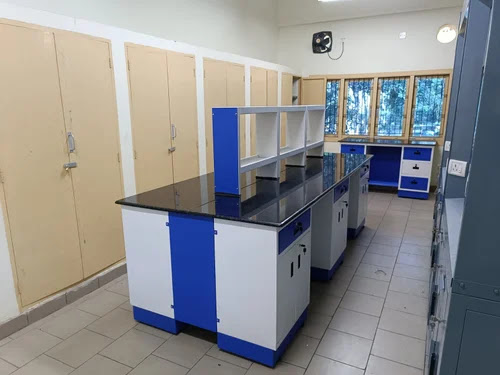Quality assurance (QA) plays a crucial role in laboratory furniture manufacturing for several reasons. Laboratories are environments where precision, accuracy, and safety are of utmost importance, and the furniture within these spaces must meet stringent standards. Here are some key aspects highlighting the importance of quality assurance in laboratory furniture manufacturing:
Precision and Accuracy: Laboratory furniture often includes specialized equipment such as workbenches, cabinets, fume hoods, and storage units. QA ensures that these items are manufactured with precision and accuracy, meeting the exact specifications required for scientific experiments, testing, and research activities.
Material Selection: QA processes ensure that the materials used in laboratory furniture manufacturing are of high quality and meet specific industry standards. This is vital to prevent contamination, chemical reactions, or other unwanted interactions between the furniture and substances used in the laboratory.
Durability and Longevity: Laboratories are typically high-traffic areas with constant use of equipment and chemicals. QA ensures that the furniture is durable and capable of withstanding the harsh conditions of a laboratory environment. This includes resistance to corrosion, chemical spills, and other potential sources of damage.
Safety Standards: QA helps manufacturers adhere to strict safety standards and regulations governing laboratory environments. Furniture must be designed and manufactured to mitigate risks such as chemical exposure, fires, and ergonomic issues to ensure the well-being of laboratory personnel.
Compliance with Regulations: Laboratories are subject to various regulations and standards imposed by local and international authorities. QA processes ensure that laboratory furniture complies with these regulations, including those related to materials, construction, and safety features.
Customization and Flexibility: QA ensures that manufacturers can meet the diverse and specific needs of different laboratories. Customization options, such as size variations, material choices, and additional features, can be verified through QA processes to meet the unique requirements of each laboratory setting.
User Experience: Quality assurance contributes to the overall user experience by ensuring that laboratory furniture is ergonomically designed and user-friendly. This is important for the efficiency and comfort of laboratory personnel who spend extended periods working in these environments.
Brand Reputation: Consistently delivering high-quality laboratory furniture establishes a positive brand reputation for manufacturers. Laboratories are likely to choose suppliers known for reliable, durable, and compliant products, contributing to long-term business relationships.
In summary, quality assurance in laboratory furniture in oman manufacturing is essential to meet the demanding requirements of laboratory environments. It ensures that the furniture is built to precise specifications, complies with safety regulations, and provides a durable and efficient workspace for scientific research and experimentation.

Comments
Post a Comment